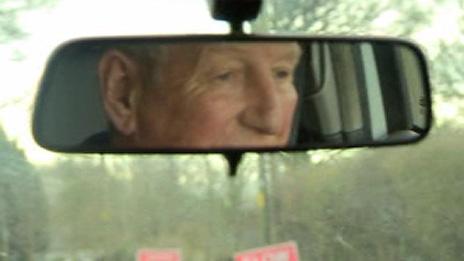More join ranks of self-employed in Wales
- Published
Car body specialist Tom Maunder and his mother Thea describe the move to self-employment
When car body repairer Tom Maunder was made redundant for the third time, he'd had enough. So he bought the business.
While most people receive Christmas cards, the only cards Tom ever seemed to get each December were those telling him he was out of work. After a three-year apprenticeship with BMW, he was told there was no permanent job; he then joined another accident repair shop for 18 months before being let go.
Then it was third time unlucky at a body shop in Llansamlet in Swansea, as winter bit hard.
"Expenditure was sky high, also our income was not the best," said Tom, aged 24. "Although we had plenty of work coming through, when Christmas time came along it went so quiet, they weren't able to stay afloat and went into administration."
His parents had also had enough by now and so the family stepped in and decided to buy the operation and Scuffed Up was born earlier this year.
His mother Thea, who was semi-retired, had her own experience of redundancy from a tourism management job with a national park.
"We weren't prepared to see him fail again," she said. "It's purely for Tom. He's very skilled at what he does and we thought we'd give it a go, the business was up for sale and it was a viable option," she said.
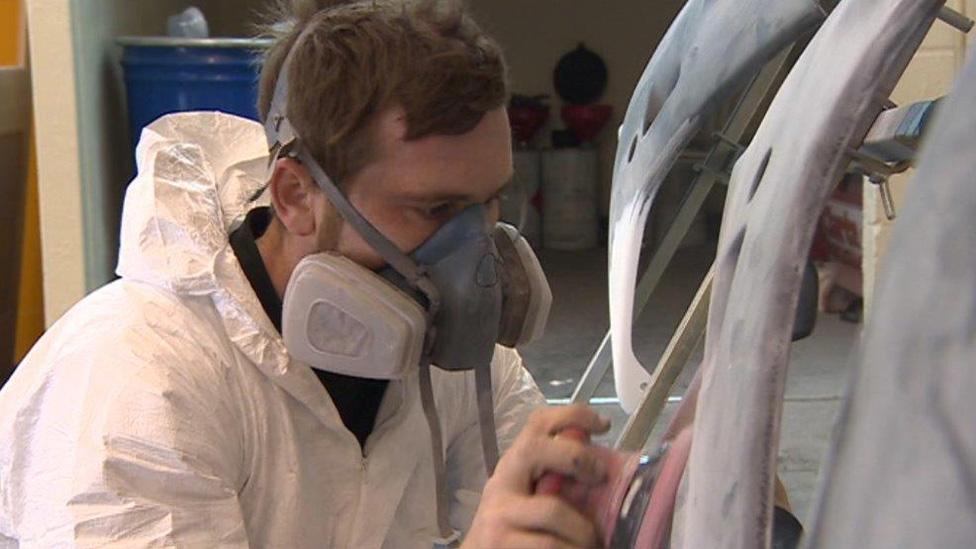
Tom Maunder at work in the body shop
Tom added: "It was really frustrating. I have a lot of pride and passion in my work. There's no cutting corners. To be made redundant every year, especially around Christmas, was heartbreaking to a degree. To now actually have the opportunity to make this business my own is a dream come true and I'll work as hard as I can."
It is mostly a family affair, with Tom's father Alun - a retired lecturer - on reception and his elder brother and sister part of the team too. A worker from the old business has been taken on too and the family are looking at trainees.
"Everybody here is on minimum wage," said Thea. "We just need to take small steps at a time, grow the business and hope everyone stays with us.
"Everybody who's invested is a director and have very clear roles and it's worked really well. We still feel a little insecure because the commitment is all ours. I've enjoyed employment so to be purely responsible for our own destiny is quite scary - we enjoy the control but it's a huge commitment, financially and emotionally, only time will tell."
The Maunders have joined the ranks of the self-employed in Wales, which involves one-in-five of new jobs created since 2010.
However it appears that it is still less prominent in Wales compared to the rest of the UK, where self-employment accounts for 32% of new jobs.
At the end of 2016 there were 176,000 self-employed people in Wales - a rise since 2010.
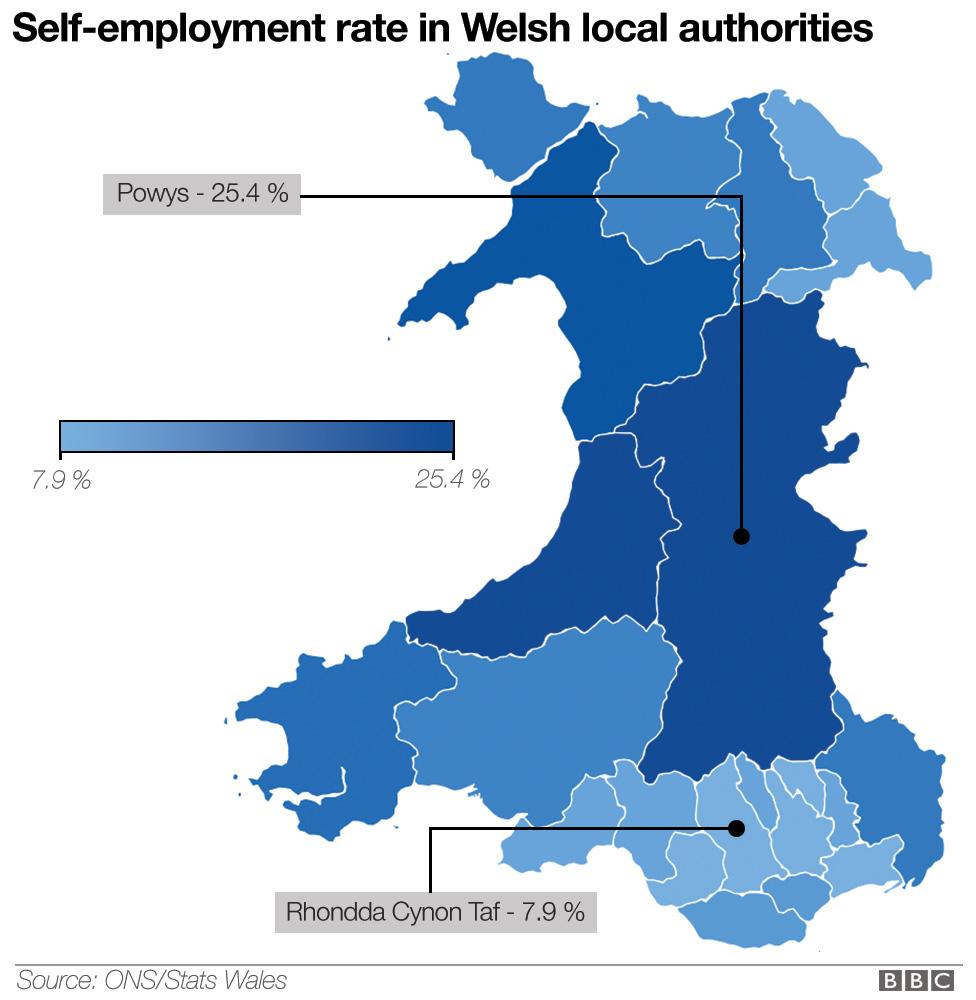
That proportion varies depending on where you live in Wales and is at its lowest in areas historically dominated by heavy industry, while highest in Powys where farming accounts for about one in three of businesses.
Not only are farmers usually self-employed but they are dependent on a string of other self-employed trades like farm contractors, blacksmiths and sheep shearers.
In addition, rural communities in Wales have a high proportion of cafes, hotels and restaurants, where self-employment and insecure housing are prevalent.

Victoria Cao has gone freelance in graphic design
As well as the traditional self-employed, there is also the so-called "gig economy" - people on short-term contracts or freelancing.
Victoria Cao, 27, a freelance graphic designer working in Cardiff decided the time was right to try going it alone after five years working for companies in design and digital marketing.
She has taken part-time work to bridge the gap to pay the mortgage between the end of a guaranteed regular income and establishing her own business Stray Pixel.
"It can be quite scary and it's hard work, but don't let the fear stop you," said Ms Cao.
"It's exciting when the email comes in to say you've got work - it's not the same as when you're in full-time employment with someone else.
"I'm going to give it a year but in my heart I know I'm going to make it and it's been three months and it's going much better than I expected and I'm really enjoying it," she said.
But for Richard Mayled, 47, from Merthyr, his experience of working as a delivery driver for a large company in the Gwent valleys was "an absolute nightmare".
He had worked in IT for 25 years but wanted to try something different.
Mr Mayled would only find out the night before whether he was working or not and then out of his £120-a-day pay he had to pay £28 each day to hire a van from a specified firm.
He still paid the van hire fee even for the days when he wasn't working - and for the period after Christmas he was working as little as two days a week. His diesel allowance was also only 12 pence per mile.
"When I was working it could be 12 or 14 hours - you could get a call after 6pm telling you there were another 30 parcels which needed delivering," he said.
Mr Mayled was told he was no longer required in January and then it took him until April to be paid what he was owed.
His advice to anyone considering gig working is to "read every single detail of what you sign up to."
He has now got a full-time job back in IT.
Dr Lucy Minford, economics lecturer at Swansea University, said: "Gig workers are weighing up the pros and the cons. There is that lack of job security and workplace pension, but the majority have weighed up and value the variety that it offers, the autonomy, the control over when you work and who you work for and what projects you take on."
She says that "gig workers" also have a role to play, especially with smaller companies.
"When we talk about entrepreneurs, we're talking about small firms, they're agile, dynamic, responsive to new opportunities and able to change direction quickly. It's an engine of growth. We should be careful about trying to remove that flexible workforce."
Between October and December 2016 there were 37,000 people in Wales working on so-called zero hours contracts, 11,000 fewer than the year before.
Around 20% of these wanted to work more hours but far more of those indicated they were happy with the arrangement.
Overall there are more people working in Wales than ever before. The Conservatives and Welsh Labour both claim credit for that.
Unemployment has recently risen a little to 4.8% but for most of the 12 months it has been lower - and below the UK average.
What is also below UK levels are our wages. Last year, middle income workers in Wales were paid £492 a week - £47 a week less than the UK average.
That is a reflection of the fact that a high proportion of jobs in Wales are relatively low skilled. In contrast Wales on the whole has a lower proportion of high level managerial and professional roles. That in turn impacts on the economy as there is less being spent in shops and on services.
Across the UK, growth in the economy is largely as a result of consumer spending. So if on average people in Wales have less disposable income, that partly explains why the Welsh economy lags behind other parts of the UK in several indicators.
The latest inflation figures will be dismal reading for those on low pay.
Average wages have not been keeping up with the cost of living anyway but with the latest inflation rate rising from 2.3% to 2.7% in one month many households will find it harder to pay for the basics of food, clothing and energy - the elements of inflation that are rising most steeply.
Back in the late 1980s and early 90s, as Wales' traditional industries contracted many thousands of people found themselves out of work and understandably attracting new jobs was a priority for all political parties.
But we are in very different times now and the political debate is the quality and security of those jobs and about what is the best route to help lift people's standards of living.
- Published17 May 2017
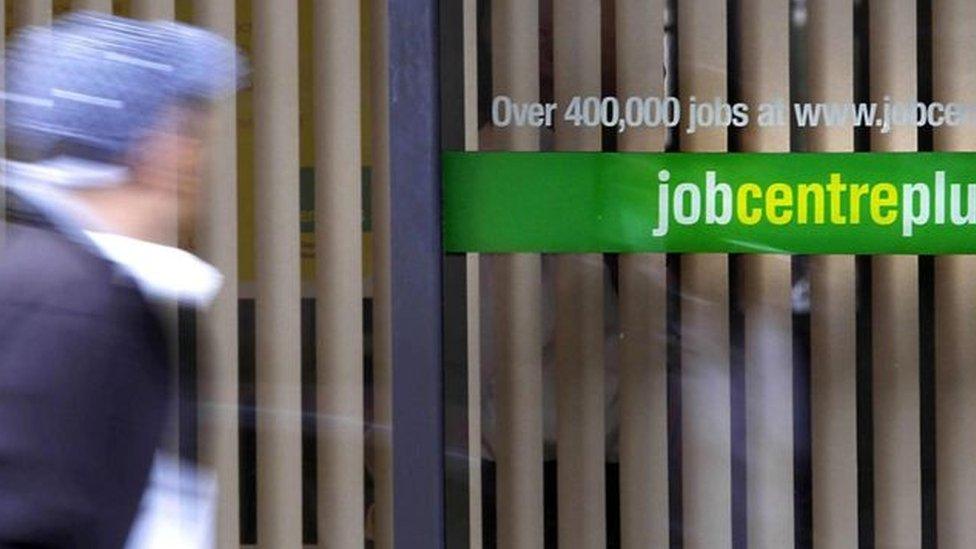
- Published16 May 2017

- Published10 February 2017
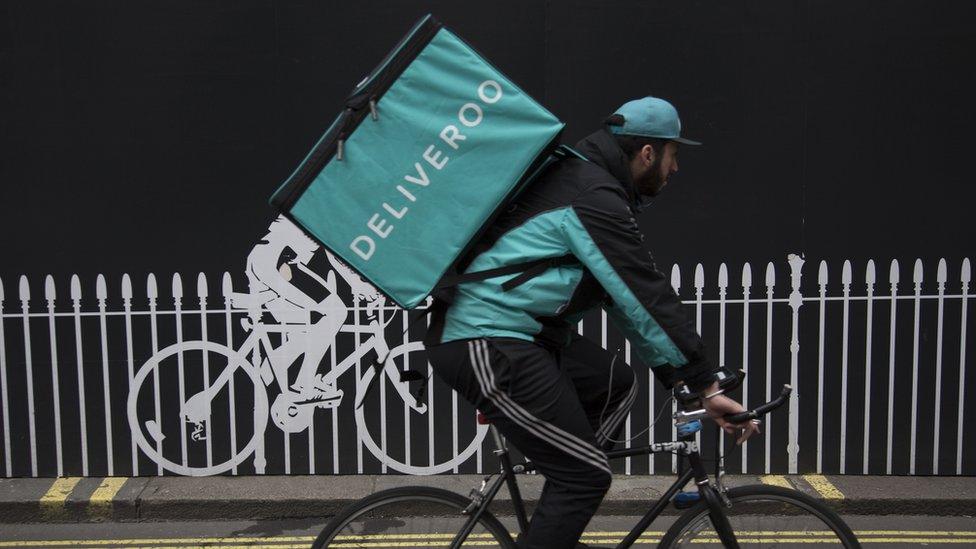
- Published20 February 2017

- Published10 October 2016

- Published18 October 2016
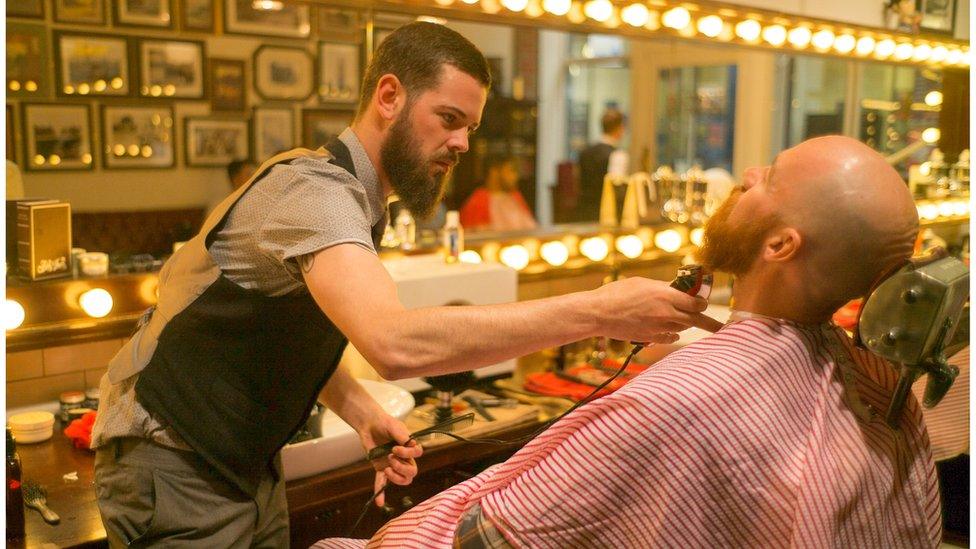
- Published6 May 2014

- Published14 February 2016
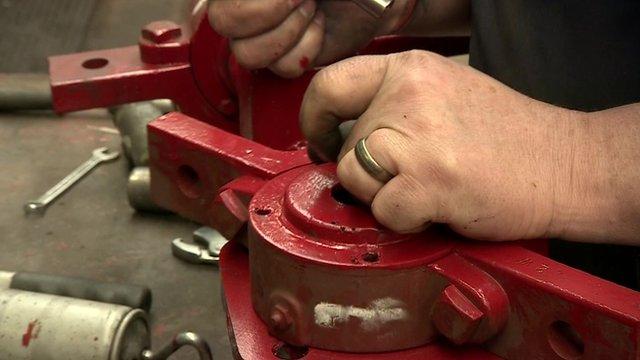
- Published5 September 2014
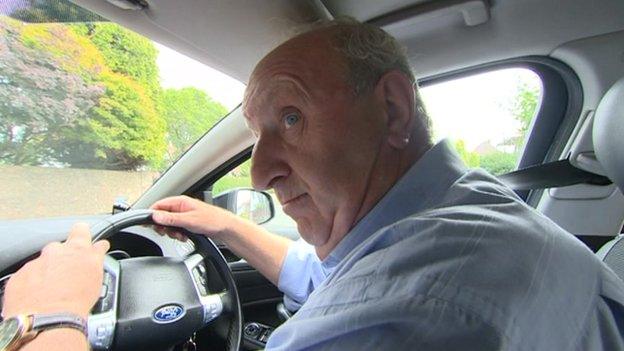
- Published6 February 2013
